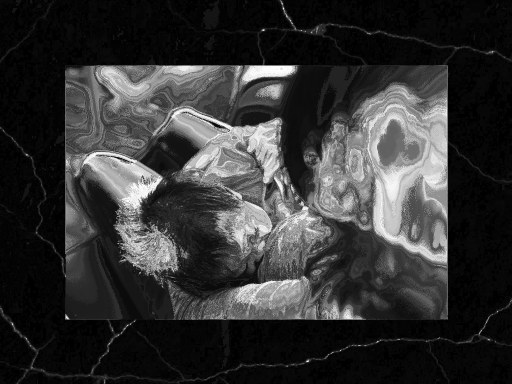I breastfed my son for exactly one year. It took every bit of physical, mental and emotional strength I had, as well as some additional strength I didn’t know I had but seemed to acquire along the way.
In my case, breastfeeding did create the much-advertised bond between me and my child; and as I nourished him with my body, I watched him grow in awe. But breastfeeding also left me feeling anxious, lonely, professionally behind, and full of resentment toward my partner — and toward a society that had plenty to say about my journey, but little support to offer me.
In the months since I stopped breastfeeding, I’ve asked myself many times how I got there. I am, after all, a pediatrician. I think the answer is that I was prepared for — and fully avoided — the cracked nipples, the clogged ducts and the engorgement. I also knew the amount of work that it would take to establish my milk supply and how to properly latch my baby. What I was fully, embarrassingly unprepared for was the mental health toll breastfeeding would take.
The anxiety kicked in first. It was like my baby had come with a little ticking clock that only I could hear. I was trying so hard to feed on demand, but also not to wait so long that he may start to lose weight, or my milk supply may dip. I rested when and where I could, but by the time one nursing session was over, we burped and changed diapers, he’d sometimes be hungry again. The sleep deprivation mounted, the imaginary clock continued to tick, and I seemed completely unable to relax and trust my body and my baby.
Then came the loneliness. Because I was already up nursing at night, most — though I should say not all — of the nighttime duties fell on me. I’d get up, nurse from each breast, burp, change diapers and put back to sleep. The process would take anywhere from 45 minutes on a good day, to two hours on a day my little guy had a hard time unwinding. In addition to being exhausted, I was lonely. I’d sometimes text with my sister, who was also breastfeeding an infant at the same time, when our nursing sessions aligned. When they didn’t, it was often me and my hungry baby all night.
Anxious, lonely and exhausted, I went back to work after a three-month maternity leave. I was not ready, and yet this was considered a generous leave in a country that does not guarantee it. Beyond the physical and logistical challenges of continuing to breastfeed while working — finding a time and a space to pump, carrying pump equipment, storing milk, cleaning up, etc — actually focusing was hard. By the time I was done pumping, had a meeting or two and looked at my inbox, it was time to pump again. On days I was seeing patients, I would always run behind. I will forever be grateful to the fellow moms who showed me kindness and grace in those months.
As I tried to keep up at work, I noticed my resentment toward my partner grow. In the many conversations we have had since, I’ve come to understand that his life changed too. He also saw his workday shortened, his sleep disrupted, his ability to sustain his focus altered. But in my mind, I always had it worse. And this made me angry. The anger made the loneliness and the anxiety feel even worse.
To be sure, the imbalance I perceived in our relationship likely did not stem solely from breastfeeding, but being responsible for all feeding activities did not help. Time, communication, love, and a very good therapist have helped us find the balance and the joy in our relationship again, but suffice it to say I now understand why so many couples split in the first year after welcoming a child.
I write all of this knowing well that many expecting moms are already turned off by the many challenges associated with breastfeeding, and that my sharing may make it worse. This piece is for the moms who are currently in it — as a doctor and a mom who chose to breastfeed, I see you, I respect you and I applaud you. It is also for the couples looking to emotionally prepare their relationship for what’s ahead. And last but not least, it is for anyone and everyone with a new mom in their life.
Until we speak more openly about the invisible challenges of breastfeeding and are ready to offer meaningful support to moms who chose to feed their babies in this way, continuing to ask or even suggest it from us is not only unrealistic, but downright cruel.
Dr. Edith Bracho-Sanchez is a practicing pediatrician at Columbia University Irving Medical Center, a contributing editor to SheKnows, and a mom to an active toddler.
These celebrity moms refuse to be shamed for using baby formula.
Source: Read Full Article


